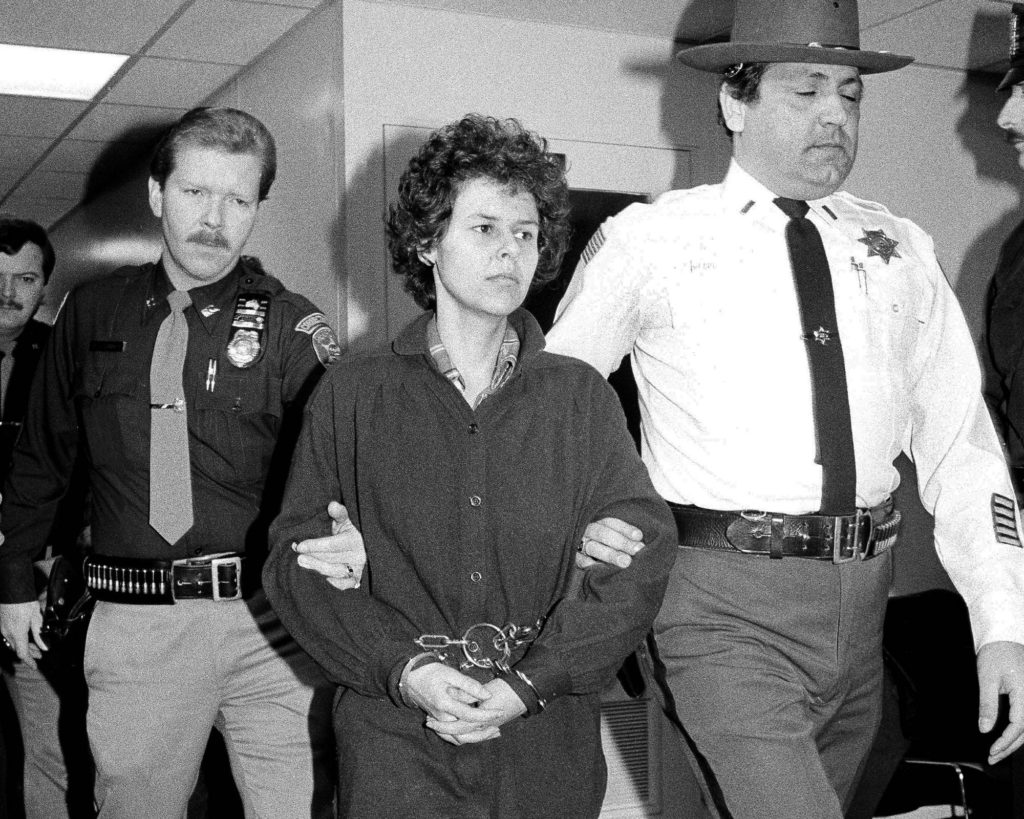Former left-wing revolutionary Judith Clark was granted parole Wednesday after serving more than 37 years behind bars for her role as getaway driver in a 1981 Brink’s armored truck robbery that left two police officers and a security guard dead.
“You were wrong. Your behavior was criminal. Your callous disregard for the wellbeing of some, in favor of others, is a disgrace,” the parole board wrote in its letter delivered to Clark. “However, this release decision is granted in keeping with applicable factors” including her age, the length of time served, her apologies to victims, her disavowal of radical principles and her accomplishments in prison.
Clark was seen by supporters as a symbol of the need for clemency if the prison system was to live up to its ideals as an institution of rehabilitation rather than retribution.
Democratic Gov. Andrew Cuomo praised Clark’s behavior as a model prisoner when he commuted her 75-years-to-life sentence in 2016 to make her eligible for parole. The 69-year-old inmate has earned a master’s degree, trained service dogs, founded an AIDS education program and counseled mothers behind bars during her time in prison.
“We are grateful that the Parole Board affirmed what everyone who has interacted with Judy already knows — that she is a rehabilitated, remorseful woman who poses no threat to society,” said Michael Cardozo, who represents Clark pro bono as co-counsel with Steve Zeidman.
Clark is supposed to be released from Bedford Hills Correctional Facility by May 15, Zeidman said, adding “We hope it’s much sooner.” She plans to live with a friend in New York City and take a job with Hour Children, an organization that helps incarcerated women and their children rejoin the community.
“My great hope is that the Parole Board continues to honor the work people do to transform their lives while in prison and lets more families’ loved ones come home,” said Clark’s daughter, Harriet Clark, in a prepared statement.
At her April 3 parole hearing, Clark presented support statements from more than 2,000 people. They included former Manhattan District Attorney Robert Morgenthau, 11 members of New York’s congressional delegation and Elaine Lord, a former superintendent of Bedford Hills Correctional Facility. A letter signed by more than 70 elected officials said the correctional system exists for rehabilitation as well as punishment.
But some law enforcement officials and families of victims opposed her release. The $1.6 million Brink’s heist at a mall in suburban New York led to the shooting deaths of Brink’s guard Peter Paige and Nyack police officers Edward O’Grady and Waverly Brown.
The parole board said it considered the letters in support and opposition of Clark’s release, as well as her post-release employment plans and low risk of future offenses.
“This perversion of justice is a sad continuation of the deadly assault on police officers happening across our nation and signals to the criminal element that it is open season on cops,” Rockland County Executive Ed Day said in a statement Wednesday.
“Judith Clark is a murderer and a terrorist,” said Patrick Lynch, president of the Police Benevolent Association of the City of New York. “This is not justice.”
Clark participated in the robbery as a member of the Weather Underground, an organization of violent revolutionaries that grew out of the anti-Vietnam war movement. “I look at the world differently now,” Clark said in her letter asking Cuomo for clemency. “Instead of abstract slogans, I see and am moved by flesh-and-blood people.”
Donna Lieberman, executive director of the New York Civil Liberties Union, said despite being the getaway driver and not at the scene of the robbery and shooting, Clark was sentenced to die in prison. “Since being incarcerated, she has expressed deep remorse for her role and used every opportunity to better herself and those around her.”
The parole board denied Clark’s release in 2017, saying she was “still a symbol of violent terroristic crime.” A state supreme court judge ordered a new hearing, saying the panel improperly gave more weight to the severity of the crime than to her rehabilitation. But that ruling was overruled by a state appellate court.
(AP)












One Response
She didn’t kill anyone. She was the driver. That makes her an accessory, so the reduced sentence is reasonable.